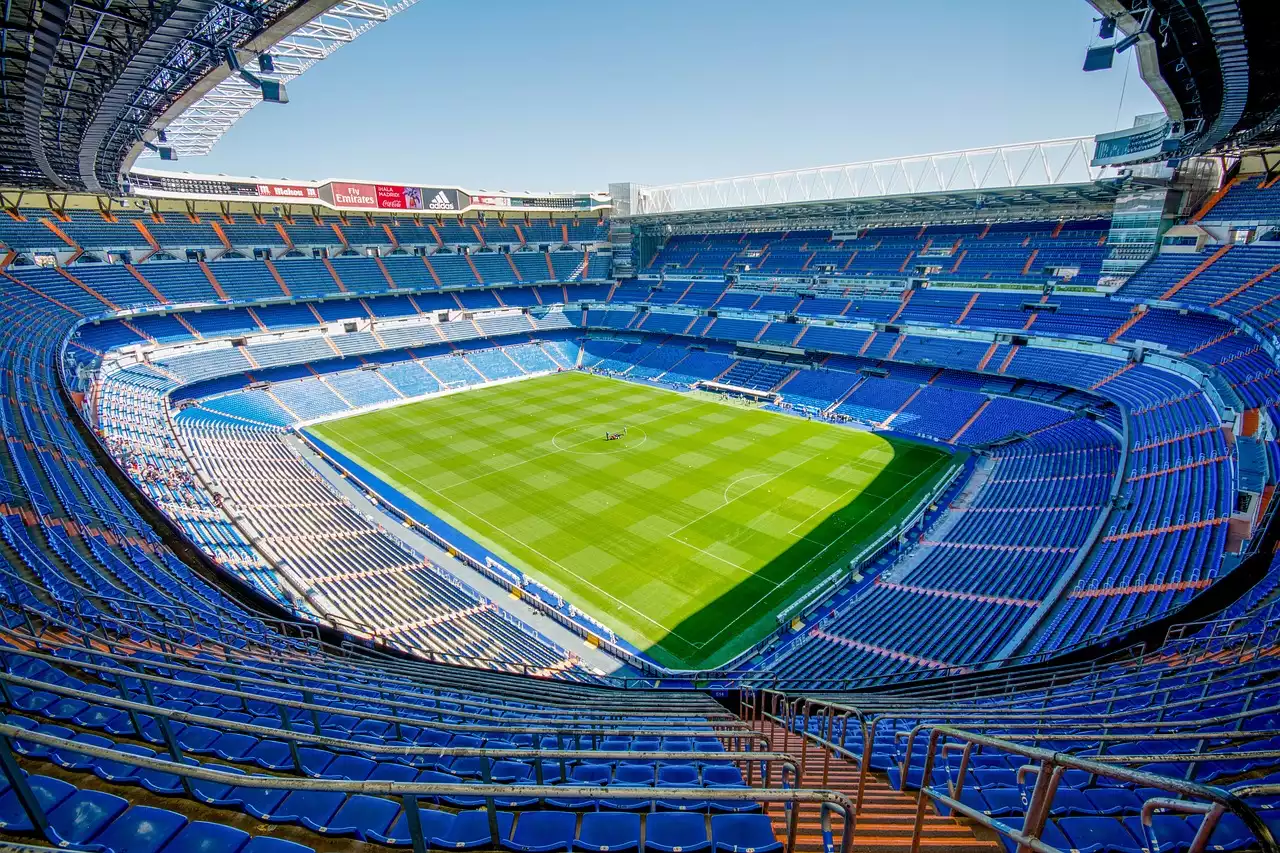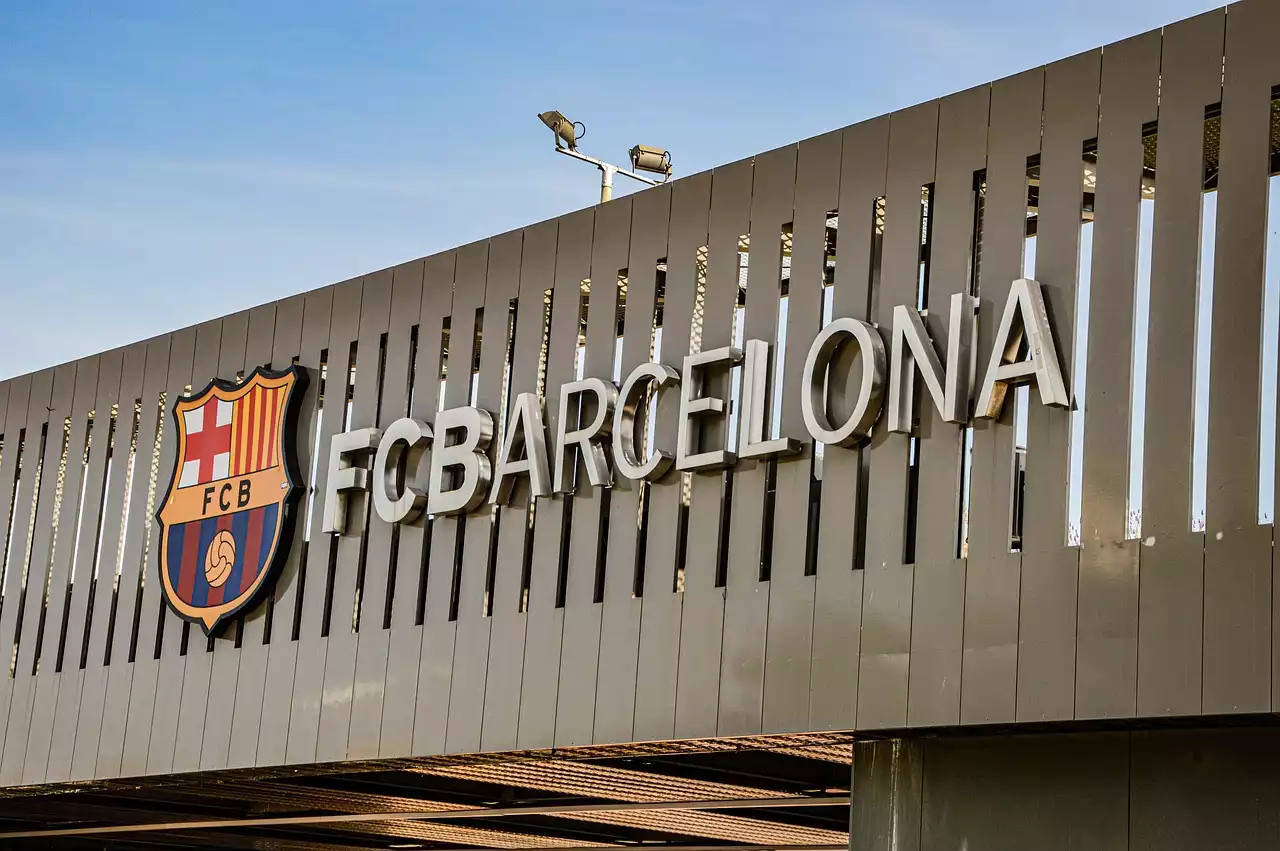In recent years, European football clubs have shifted their focus from just on-pitch success to off-pitch profit-making strategies. With increasing competition and rising player transfer costs, clubs are finding innovative ways to maximize revenue. One such approach gaining popularity is the transformation of stadiums into cash cows. By leveraging their iconic venues, clubs are capitalizing on the potential of generating substantial income beyond matchday tickets.
From hosting concerts and other cultural events to offering guided tours and museum experiences, European football clubs are diversifying their revenue streams. These initiatives not only attract a broader audience but also provide an opportunity for fans to engage with the club on a more personal level. Additionally, with the growing demand for immersive fan experiences, clubs are investing in in-stadium technology, such as augmented reality and interactive displays, to enhance the matchday experience and drive sales of merchandise and food concessions.
This article explores how European football clubs are leveraging their stadiums to unlock new revenue opportunities. It examines successful examples from top clubs and highlights the impact of these transformations on their overall profitability. Join us as we delve into the exciting world of stadium monetization and discover how clubs are creating a winning formula that transcends the boundaries of the pitch.
The Importance of Revenue Generation for Football Clubs
Football clubs, now more than ever, understand the significance of generating substantial revenue to sustain and grow their operations. While on-pitch success remains important, clubs recognize that financial stability is crucial for long-term success. With skyrocketing player transfer fees and increasing competition for sponsorships, clubs cannot solely rely on traditional income sources like broadcasting rights and ticket sales.
To address these challenges, clubs have turned their attention to stadium monetization. By transforming their stadiums into multifunctional venues, clubs can tap into additional revenue streams and reduce their reliance on matchday income alone. This strategic shift allows clubs to invest in player acquisitions, infrastructure development, and fan engagement initiatives, ultimately creating a virtuous cycle of success both on and off the pitch.
Transforming Stadiums into Revenue-Generating Assets
Stadiums have evolved from being mere playing fields to becoming valuable assets for football clubs. With their rich history and iconic status, stadiums provide a unique opportunity for clubs to generate revenue beyond the confines of the pitch. Successful clubs have recognized this potential and have implemented various strategies to capitalize on their stadium's value.
One of the most lucrative avenues for revenue generation is stadium sponsorship and naming rights. By partnering with corporations, clubs can secure significant financial backing in exchange for branding rights and exposure. This not only provides a steady stream of income but also enhances the club's reputation and visibility. For example, Arsenal's Emirates Stadium and Manchester City's Etihad Stadium are iconic examples of successful stadium sponsorship deals.
Demoreel Football Stadiums
Maximizing Matchday Revenue through Ticketing and Hospitality
While stadium transformation opens up new revenue streams, matchday income remains a vital component of a club's financial success. European football clubs are continually exploring ways to maximize revenue and provide an unforgettable experience for fans attending matches.
Ticketing strategies play a crucial role in generating matchday revenue. Clubs employ dynamic pricing models, incentivize season tickets, and offer exclusive packages to cater to different fan segments. By analyzing data and understanding fan preferences, clubs can optimize ticket prices and distribution to maximize revenue while ensuring a vibrant and diverse crowd.
In addition to ticketing, hospitality services also contribute significantly to matchday revenue. Premium seating, VIP boxes, and exclusive lounges offer fans a luxurious experience while generating substantial income for the clubs. By providing top-notch hospitality, clubs can attract high-paying customers, corporate sponsors, and international visitors, thus bolstering their revenue streams further.
Expanding Merchandise and Retail Opportunities
Football clubs have always been synonymous with merchandise, with fans proudly wearing their team's colors. Capitalizing on this loyalty, clubs are expanding their merchandise and retail opportunities to drive additional revenue. The rise of e-commerce and global shipping has made it easier for clubs to reach fans worldwide, opening up new markets and revenue streams.
Clubs are investing in innovative merchandise designs, collaborations with fashion brands, and limited-edition releases to create a sense of exclusivity and drive sales. Additionally, clubs are leveraging social media platforms to engage with fans and promote their merchandise effectively. By offering a wide range of products, from jerseys and scarves to lifestyle accessories, clubs can cater to diverse fan preferences and maximize their merchandise revenue potential.
Leveraging Technology for Fan Engagement and Monetization
Technology plays a pivotal role in modern-day fan engagement and monetization. European football clubs are embracing technological advancements to enhance the matchday experience, improve fan interaction, and drive revenue.
Augmented reality (AR) and interactive displays are transforming stadiums into immersive environments. From interactive player profiles to AR-enhanced stadium tours, these technologies provide fans with an unforgettable experience and an opportunity to engage with their favorite clubs in new and exciting ways. Furthermore, these technologies enable clubs to monetize through digital advertising, sponsorships, and partnerships, adding to their revenue streams.
Clubs are also investing in mobile applications and digital platforms to offer personalized content and experiences to fans. By leveraging data analytics and artificial intelligence, clubs can provide tailored recommendations, exclusive offers, and interactive features to enhance fan engagement and create new revenue opportunities.
Diversifying Revenue Streams through Non-Football Events
To maximize revenue, European football clubs are exploring opportunities beyond football matches. By hosting non-football events, clubs can leverage their stadiums' infrastructure and attract a wider audience, including music lovers, cultural enthusiasts, and corporate clients.
Concerts, festivals, and cultural performances have become a regular feature in stadium calendars. These events not only generate substantial income from ticket sales but also offer an opportunity for clubs to showcase their venues to a broader audience. Additionally, stadium tours and museum experiences provide fans and tourists alike with a chance to explore the club's history and memorabilia, creating an additional revenue stream while fostering a deeper connection with the club.
Case Studies: Successful Stadium Transformations
Several European football clubs have successfully transformed their stadiums into revenue-generating assets. Let's explore some notable examples to understand the impact of these transformations on their overall profitability.
1. FC Barcelona's Camp Nou: In addition to being one of the world's most iconic football stadiums, Camp Nou has undergone significant renovations to enhance fan experiences. The stadium offers guided tours, a museum, and a megastore, generating substantial revenue beyond matchdays. The club's partnership with Nike for stadium sponsorship has also added to its revenue streams.
2. Tottenham Hotspur's Tottenham Hotspur Stadium: The state-of-the-art stadium boasts innovative features, including a retractable pitch and a dedicated NFL playing surface. Through stadium naming rights and partnerships with technology companies, Tottenham Hotspur has generated significant revenue streams. Additionally, the stadium's versatile design allows for non-football events, further diversifying revenue opportunities.
The Future of Revenue Generation in European Football
The transformation of stadiums into cash cows has become a game-changer for European football clubs. By diversifying revenue streams, leveraging technology, and hosting non-football events, clubs are maximizing profitability and creating a sustainable future. The ability to generate substantial income beyond matchday tickets not only strengthens clubs financially but also allows them to invest in infrastructure, player acquisitions, and fan engagement initiatives. As the competition grows, clubs must continue to innovate and adapt, creating a winning formula that transcends the boundaries of the pitch. The future of revenue generation in European football lies in the seamless integration of on-pitch success and off-pitch monetization strategies, ensuring sustained growth and prosperity for clubs across the continent.













